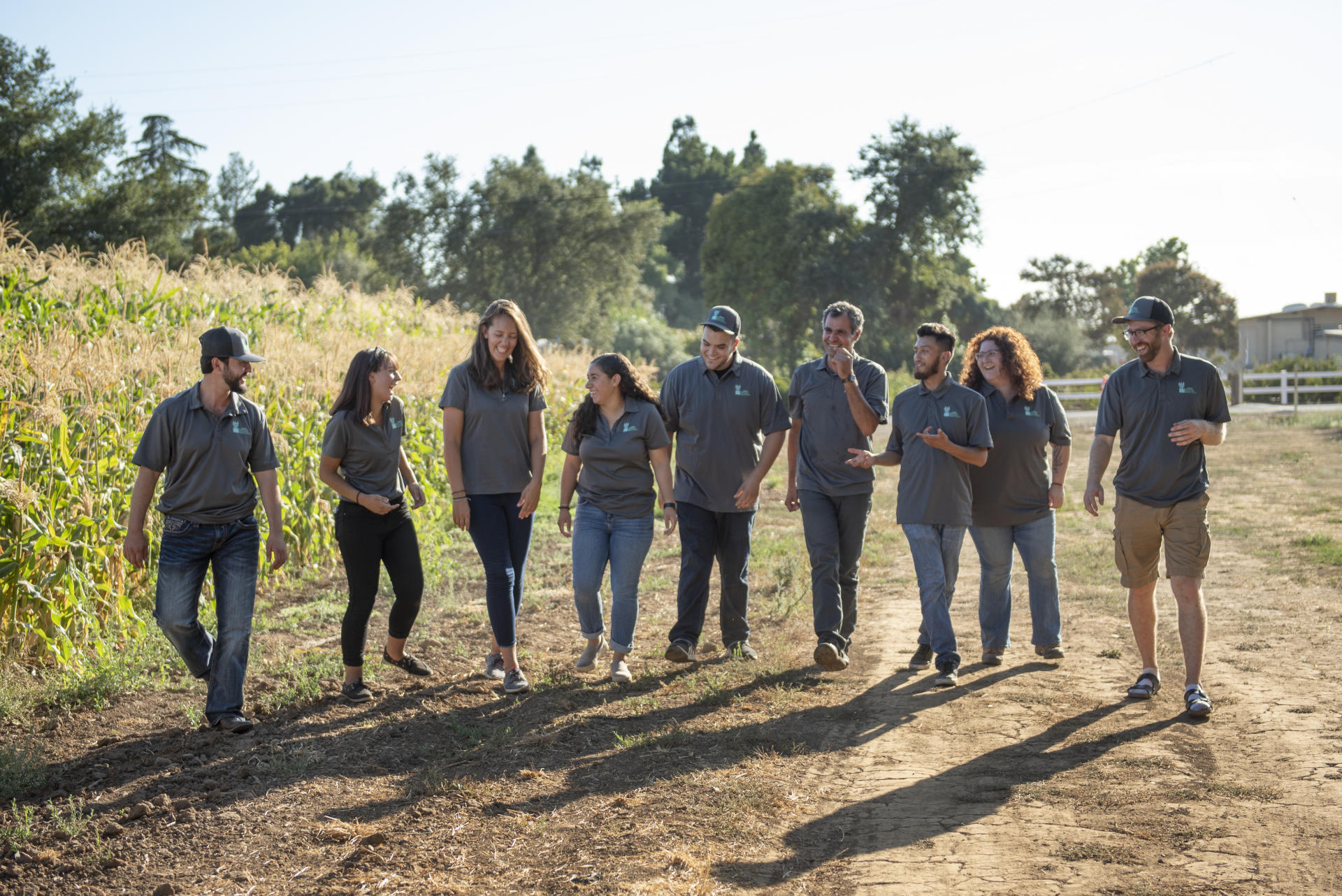Journal Club Keeps Undergraduate Agricultural Research Rolling

Students and staff are photographed together on Thursday, September 12, 2019 at the University Farm in Chico, Calif. (Jessica Bartlett/University Photographer/CSU Chico)
What do researchers do when they can’t do research? They talk about it. At least that’s what one group in the College of Agriculture is doing.
When the COVID-19 restrictions meant undergraduates in Professor Hossein Zakeri’s Biological Nitrogen Fixation (BNF) research group couldn’t get out into the fields to collect data on their research plots, they started a Journal Club to keep connected with one another and keep learning. The Journal Club was the brainchild of Zakeri’s postdoctoral researcher Kyle Brasier.
“We have a really committed group of about 10 students working on various research projects, and we needed a way to keep them engaged and connected without putting them at risk,” Brasier said. “A lot of these students are getting paid through various grants and so we wanted to offer meaningful work that would advance their research.”
Each week Brasier and Zakeri send a discussion topic or a published journal article to the group and expect them to come to the weekly Zoom call prepared to discuss the reading.
“This past week we talked a lot about the nitrogen cycle, just making sure that everyone has a really complete understanding of this very complex cycle that is the basis of all of our research projects. Other weeks we might pull up a research paper and discuss what the paper found, how it relates to their own work, where we think the paper could have been improved upon, just kind of deconstructing the paper to help the students guide their own writing,” Brasier said.

One of those students is senior Amanda Cox, an agriculture science and education major who will be graduating this spring with honors. She hopes to have her honors thesis, which investigates various reference crops for use in biological nitrogen fixation quantification, published in an academic journal. Cox views the Journal Club as a way to improve her own writing.
“Taking a look at different articles, not only the content of them, but the way they are formatted, structured, and worded, has definitely helped my critical thinking skills,” Cox said. “We all come with different points of view, and so the discussion really opens my eyes to new ways to look at things.”
Brasier said he’s really enjoyed seeing the students pick up on the nuances of the papers.
“Rather than going through and assuming that just because it’s been published that it’s solid, perfect, and complete, they are putting on their thinking caps and thinking critically about what they are reading,” he said.
Looking ahead to a time when students can return to campus and to the University Farm, Brasier hopes that the Journal Club can continue.
“Especially for students in their second year of their research projects, they’ve already been through the process of setting up the experiment, planting, collecting data, doing the physical part of research. But having this opportunity to step back and examine the structure and content of published research papers more critically will help them improve their own writing and become better researchers overall,” he said.
Cox, who will pursue her master’s degree in soil science at Oregon State University upon graduation, credits her professors and the BNF group for helping to launch her research ambitions.
“Research is cool. I’m so glad I’ve had this opportunity to be involved in undergraduate research, and I think more people should try it,” she said. “I don’t think I ever would have thought about graduate school, or been prepared for it, if I hadn’t gotten involved in research at Chico State.”


